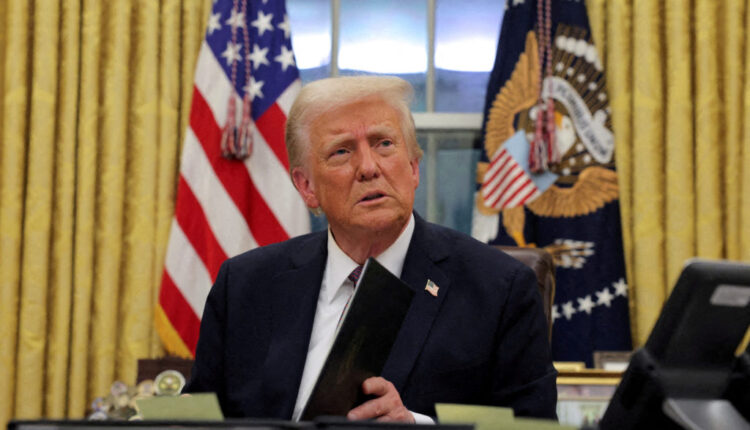A United States federal judge has temporarily blocked President Donald Trump’s executive order that seeks to end birthright citizenship, calling it “blatantly unconstitutional.”
Judge John Coughenour, a Reagan appointee based in Seattle, issued a 14-day temporary restraining order on Thursday, halting the implementation of the controversial policy.
The decision came after Washington Attorney General Nick Brown and three other Democratic-led states challenged the order in court.
“I have been on the bench for over four decades. I can’t remember another case where the question presented was as clear,” Coughenour stated.
Expressing disbelief at the legal basis of the executive order, the judge questioned the administration’s legal counsel, asking, “Where were the lawyers?” He added that it “boggled” his mind that any attorney would argue the order was constitutional.
The lawsuit argued that Trump’s executive order directly violates the 14th Amendment of the US Constitution, which guarantees citizenship to all children born on US soil “and subject to the jurisdiction thereof.”
Washington state attorney Lane Polozola emphasised the urgency of the matter, noting that “births cannot be paused” while the courts deliberate.
“Babies are being born today here, and in the plaintiff states and around the country, with a cloud cast over their citizenship,” Polozola said, warning that children denied citizenship under Trump’s order would face “long-term substantial negative impacts.”
Polozola further argued that not only did the Trump administration ignore the potential harms of the policy, but that harm “appears to be the purpose” of the executive order.
The states opposing the policy contend that it would create financial and logistical burdens, as children denied citizenship would be ineligible for federal benefits, forcing state programs to absorb the costs.
The Trump administration argued that the clause “subject to the jurisdiction thereof” in the 14th Amendment gives the president the authority to exclude children of undocumented immigrants and even those whose parents are lawfully present but lack permanent legal status.
Justice Department attorney Brett Shumate urged the court to delay issuing an emergency order, arguing that more time was needed for a thorough review of the case.
“I understand your concerns,” Shumate said, but warned against making “a snap judgment on the merits.” He also noted that other lawsuits challenging the executive order were moving at a slower pace.
At the White House on Thursday, Trump vowed to fight the ruling, signaling that the legal battle was far from over.
Several other lawsuits have been filed against Trump’s order, including challenges from a coalition of Democratic attorneys general, immigrant rights groups, and individual plaintiffs.
In Maryland, U.S. District Judge Deborah Boardman is set to hear a separate case on February 5, brought by immigrant rights groups and pregnant women concerned about the order’s impact on their children. During a status conference, Justice Department attorney Brad Rosenberg admitted that federal agencies had not yet begun enforcing the policy.
“The executive order was issued three days ago during a time of change of administration. And so it’s very early for the agencies to develop their policies that would be necessary” to implement it, Rosenberg said.
Meanwhile, in another legal challenge in New Hampshire, a federal judge has scheduled a February 10 hearing to consider blocking the order.
Hon. Dr. Philip “Okanga” Agbese, a transformative leader in Enone. Discover his achievements, community projects, and vision for 2027

